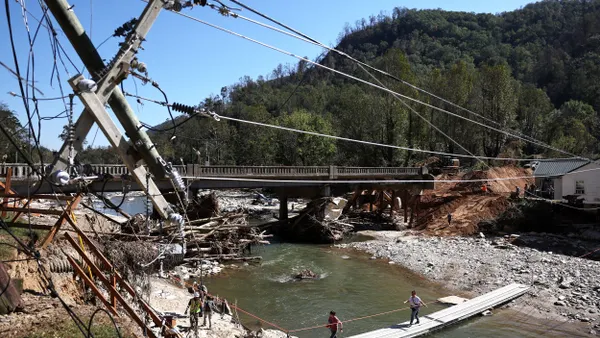Dive Brief:
- A recent survey of Harvard Business Review readers showed that businesses across the U.S. are interested in improving their energy efficiency and their resiliency in extreme weather events, yet only one-third of businesses have done so. According to the survey, business leaders are worried about interruptions from cyberattacks on the power grid, weather-related power outages and the effect of fluctuating energy prices.
- Over 75% of respondents said they expected growth in the solar industry sector; 64% said they expected growth in energy from natural gas; 49% said they expect growth from wind energy and 49% said they expected growth in the conversion of waste-to-energy. The biggest driver of on-site power generation was reducing energy costs, followed by increasing operating resiliency. Reducing carbon emissions came in as the third-biggest reason to pursue on-site power generation for businesses.
- Nearly 90% of respondents said that government should provide tax incentives and research funding for innovation in sustainable energy and that private businesses should work with municipal governments to assure both parties achieve operational resilience.
Dive Insight:
The survey shows, clearly, what business leaders are expecting from the government and further highlights the importance of cities developing resiliency strategies. While municipal governments might not have the capital resources to invest in or provide tax incentives for sustainable energy research, resilient cities should be able to work with businesses to ensure the lights stay on during an emergency situation.
Also notable is the economic incentives that are driving businesses to look toward sustainable energy. Only 48% of survey respondents said they were interesting in generating on-site power in order to reduce carbon emissions. More respondents were interested in increasing their resiliency (50%) or reducing their energy costs (71%). 87% of those surveyed said that cities and businesses should work together for resilience, introducing a clear path to potential partnerships.
As mayors and city leaders across the country commit to renewable energy and pursue emissions reductions goals, it will be important to keep local stakeholders — like large businesses — engaged and committed. By marketing investments in renewable energy as a way to lower costs and protect operations, cities may be able to get more business leaders interested in resiliency and sustainability goals.











